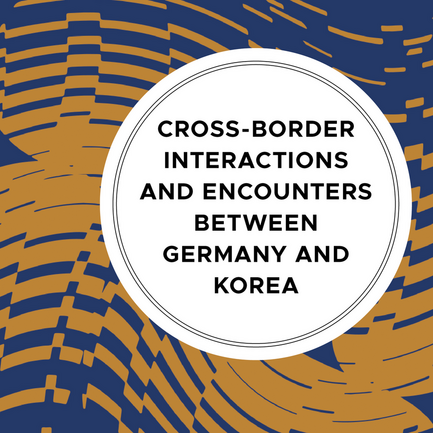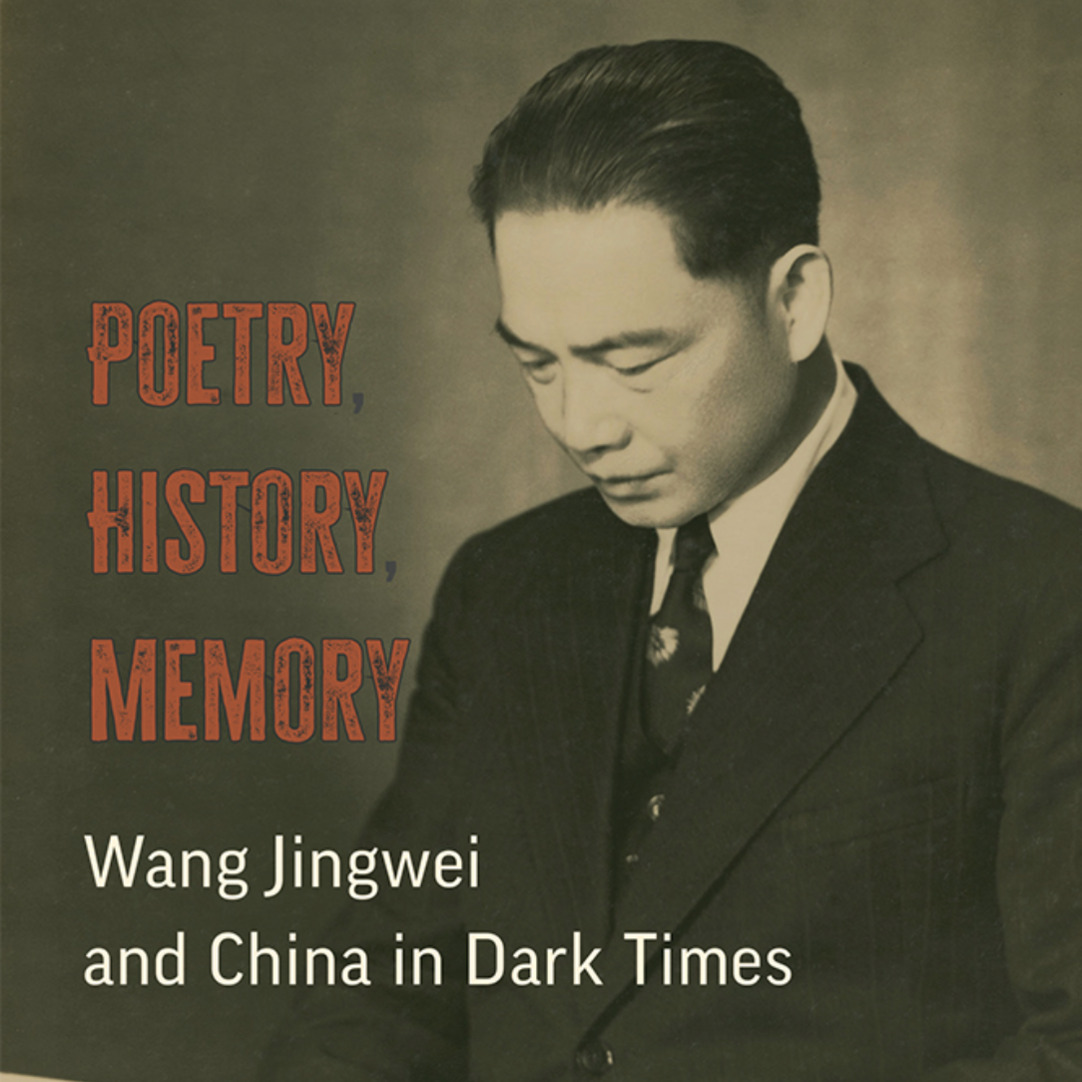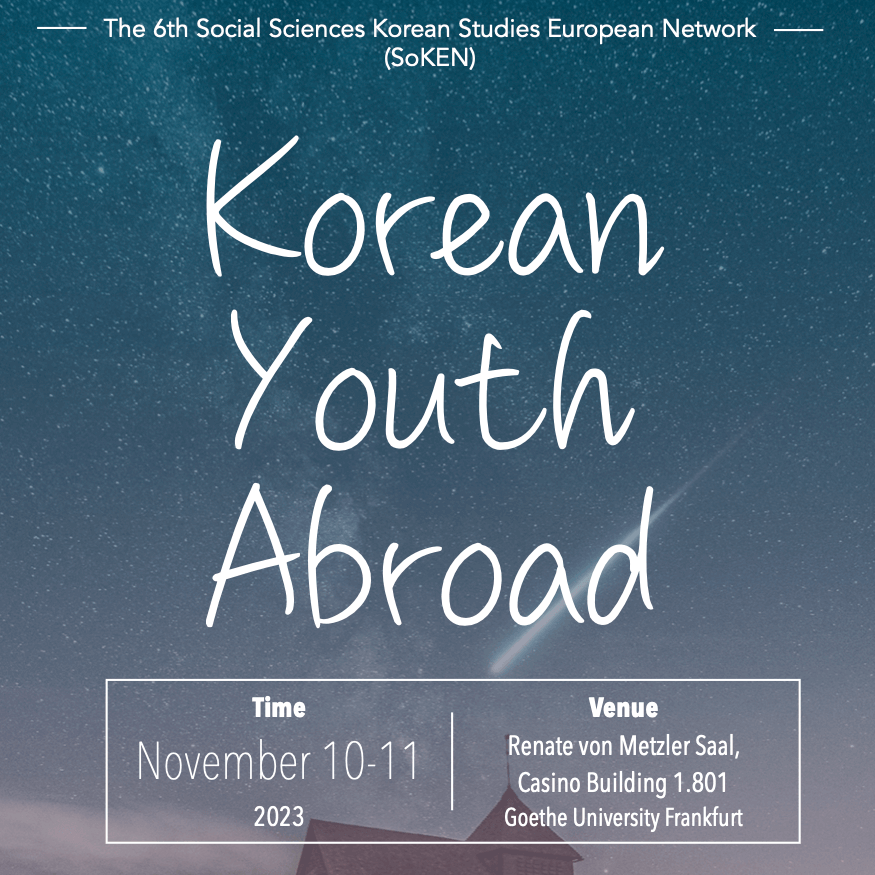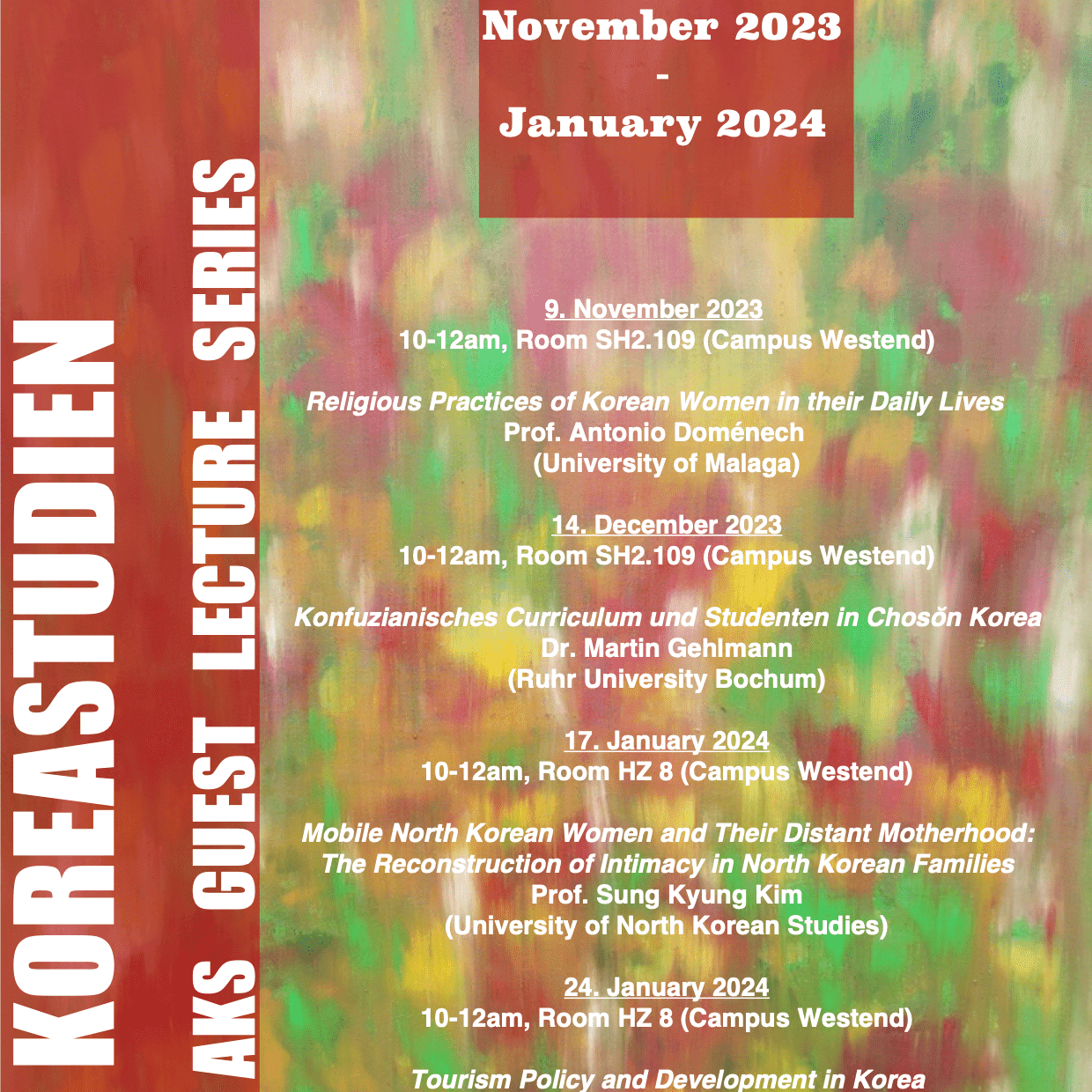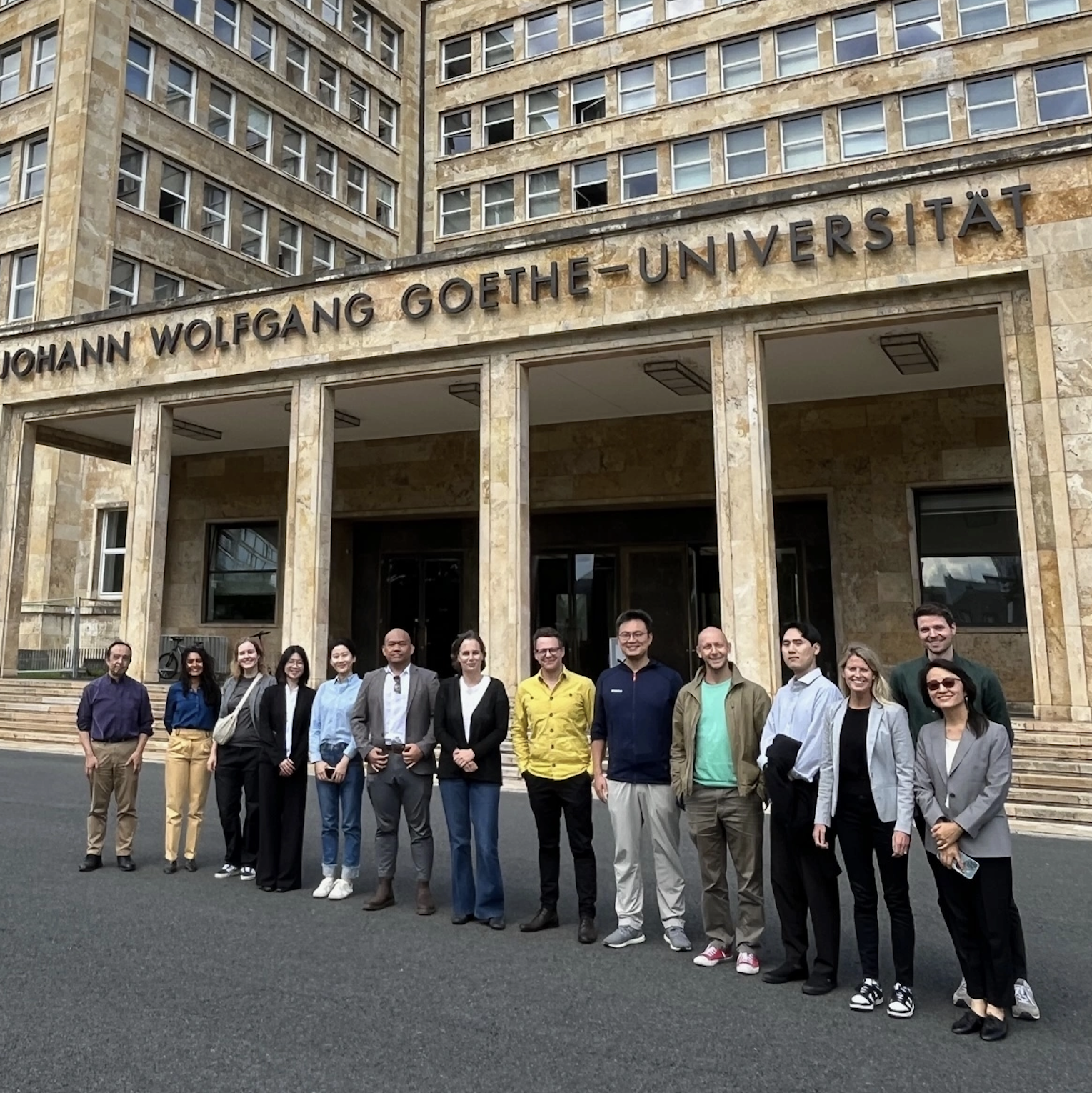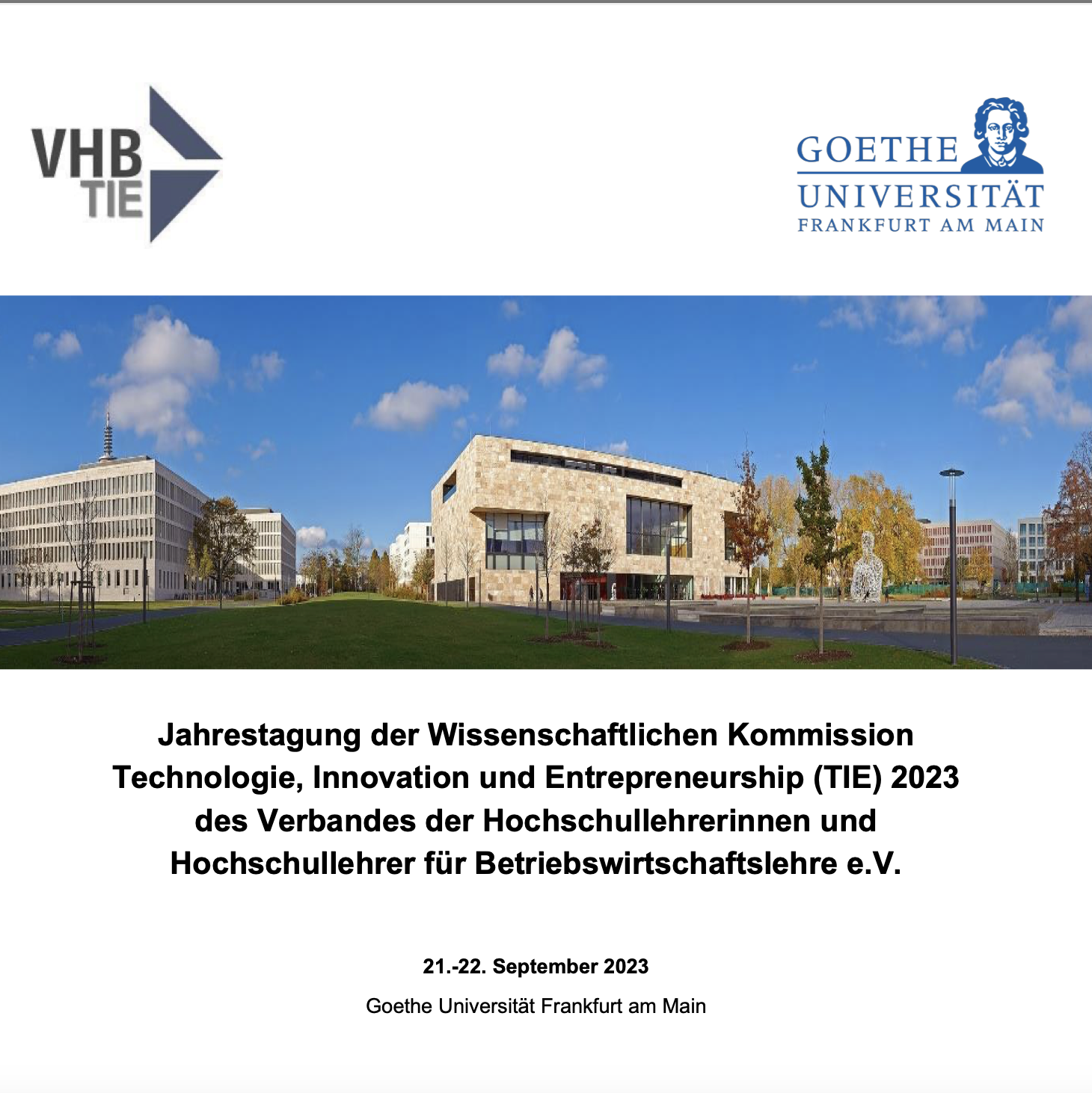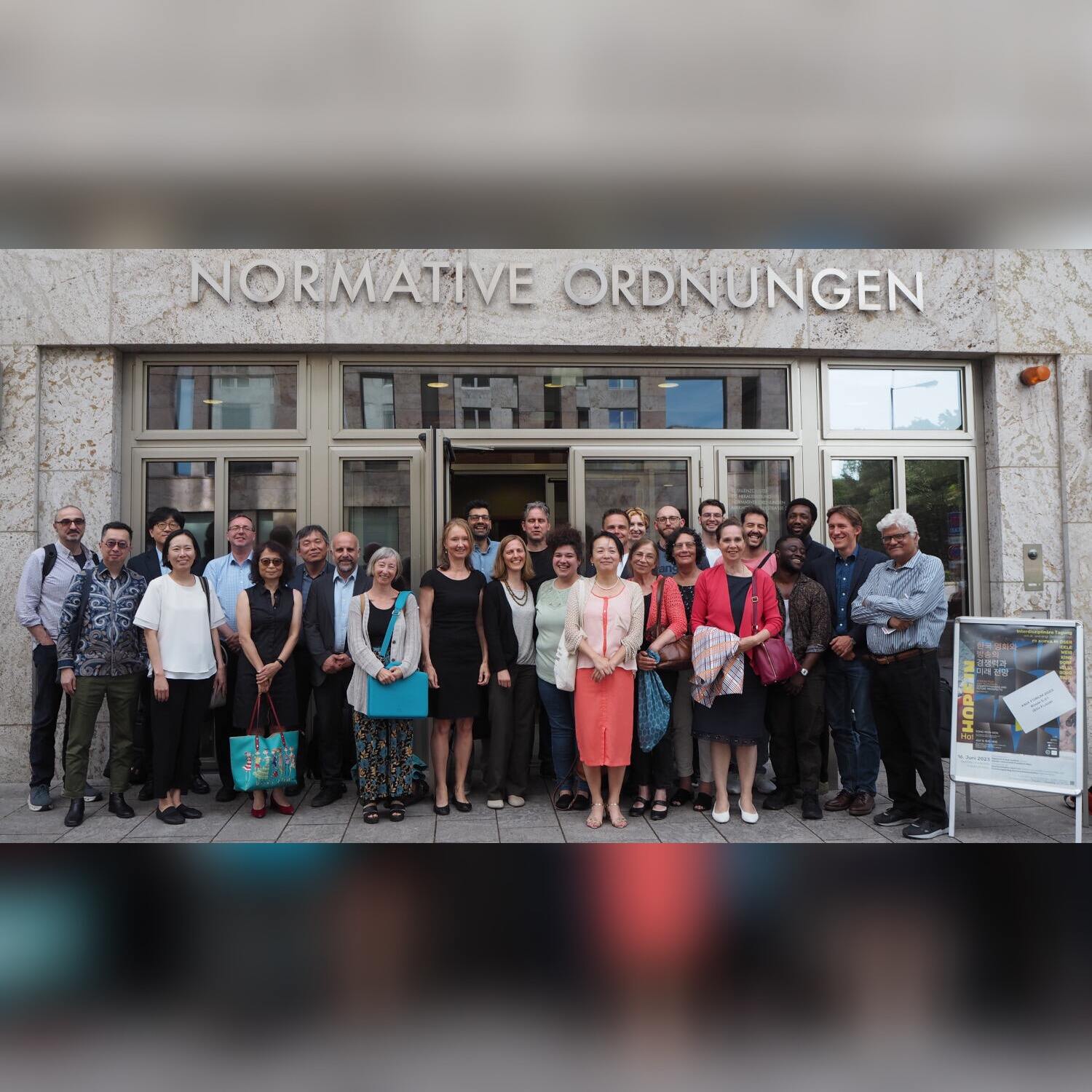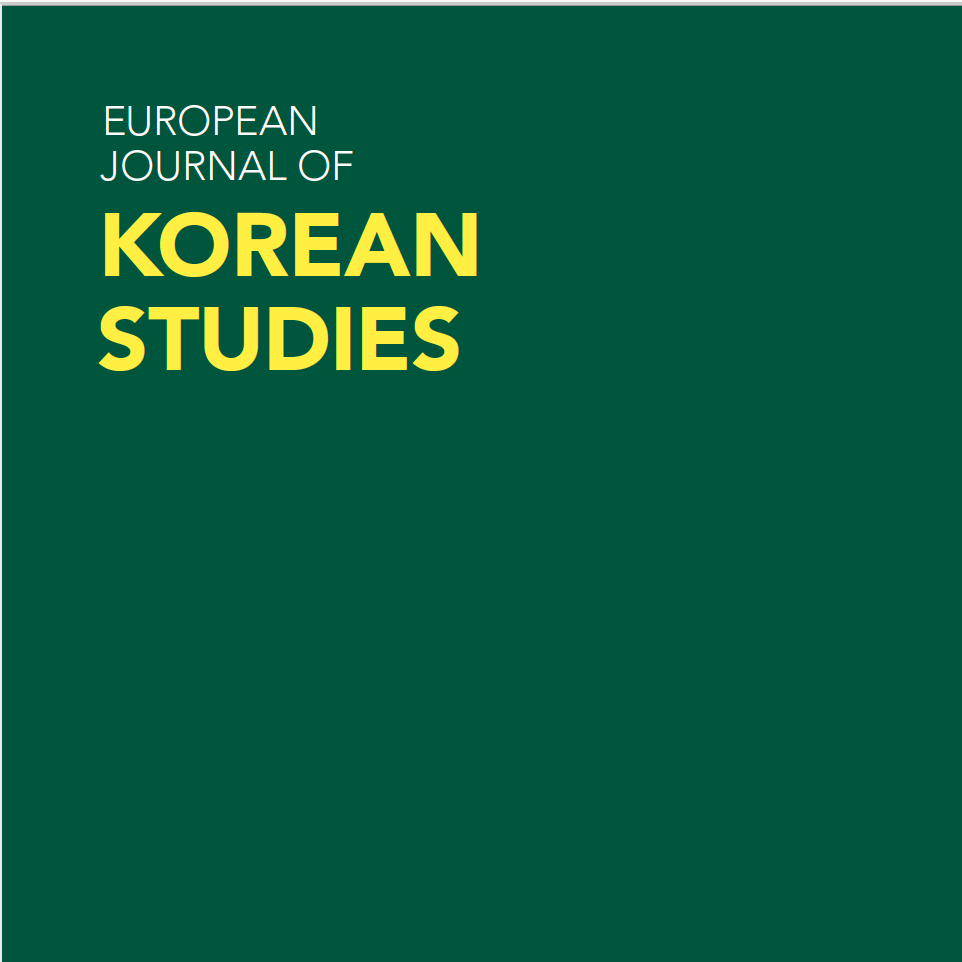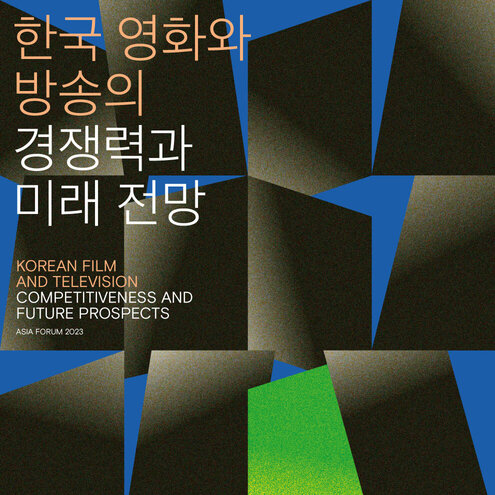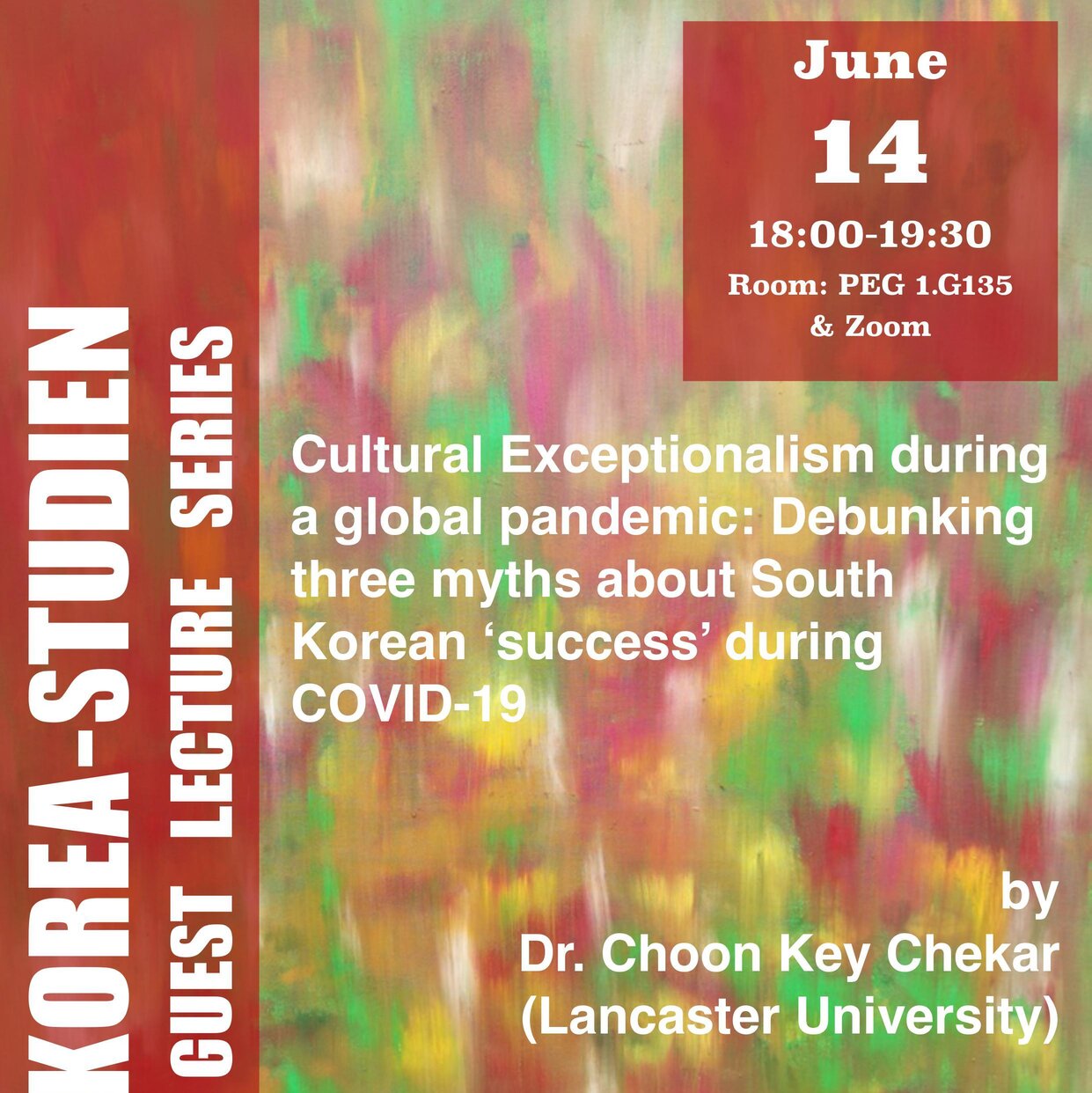News

on IZO events and publications.
on IZO events and publications.

on IZO events and publications.
on IZO events and publications.
Search for all News
MA Modern East Asian Studies

The MEAS Student Council is organizing a Career Orientation Event on 14 June 2024. Should you be interested in attending, please contact the members of the Student Council: s4933152(at)stud.uni-frankfurt.de.
MA Modern East Asian Studies
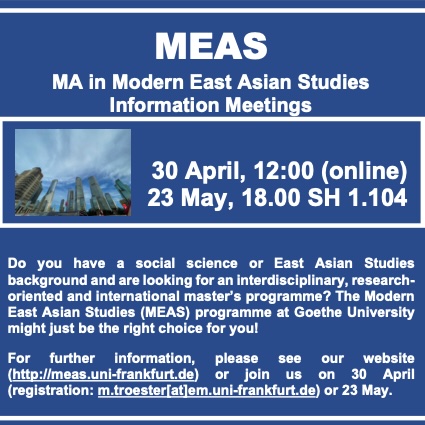
Are you interested in East Asia? Join us for the information sessions for the MA programme Modern East Asian Studies (MEAS) on 30 April (online) and 23 May (in person) or write to the MEAS coordinator. You will also find more information about the programme on our website.
Current Research
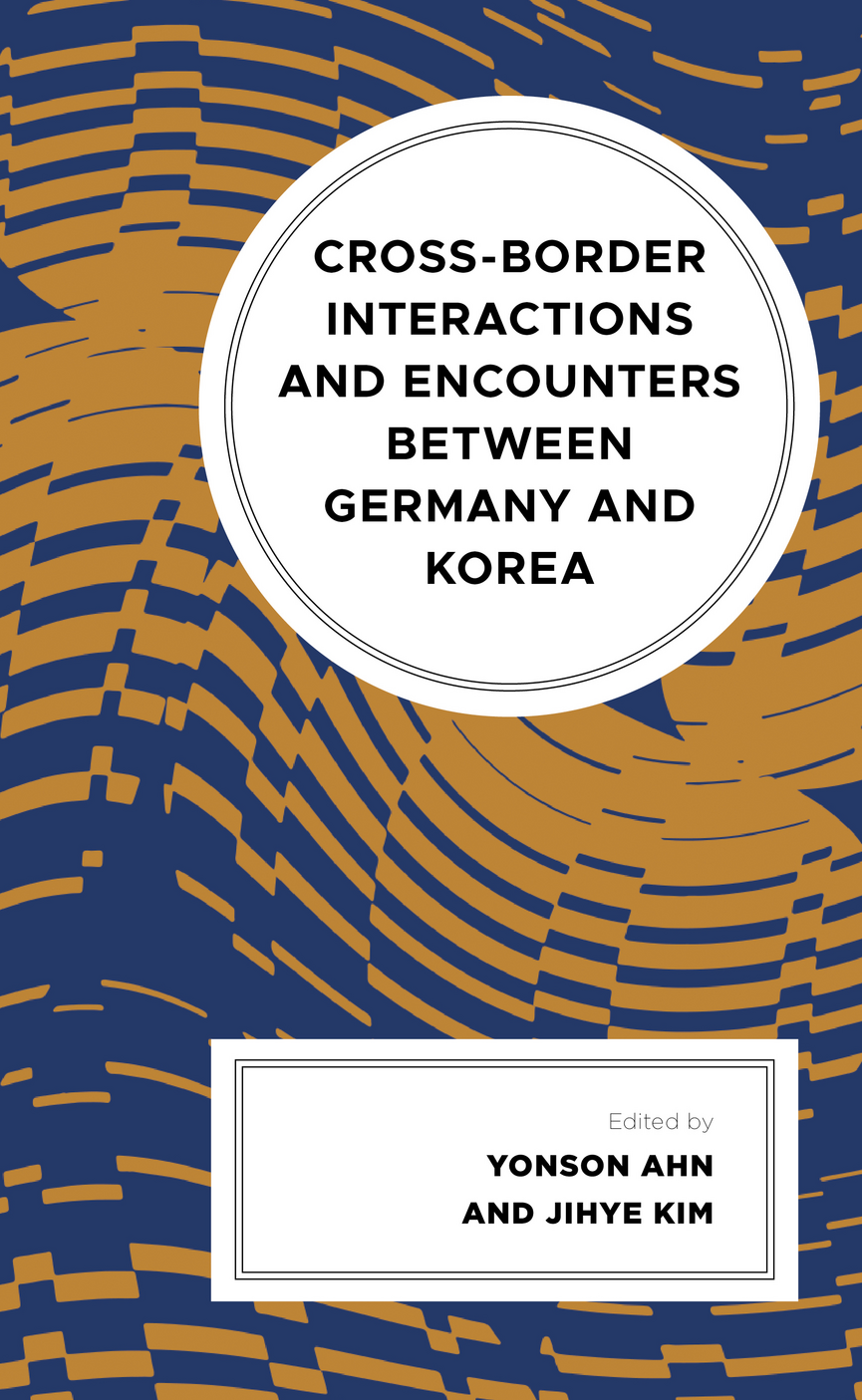
Contributors/Authors: Helen Kim, Yonson Ahn, Jaok Kwon, Jihye Kim, Jan Creutzenberg, Katharina Süberkrüb, Yuri Ko, Jin-Wook Shin, Boyeong Jeong, Hannes B. Mosler, Yvonne Schulz Zinda, Yonsuk Chae
Citation: Yonson Ahn and Jihye Kim eds. 2023. Cross-border Interactions and Encounters between Germany and Korea. Lanham: Lexington Books.
Current Research
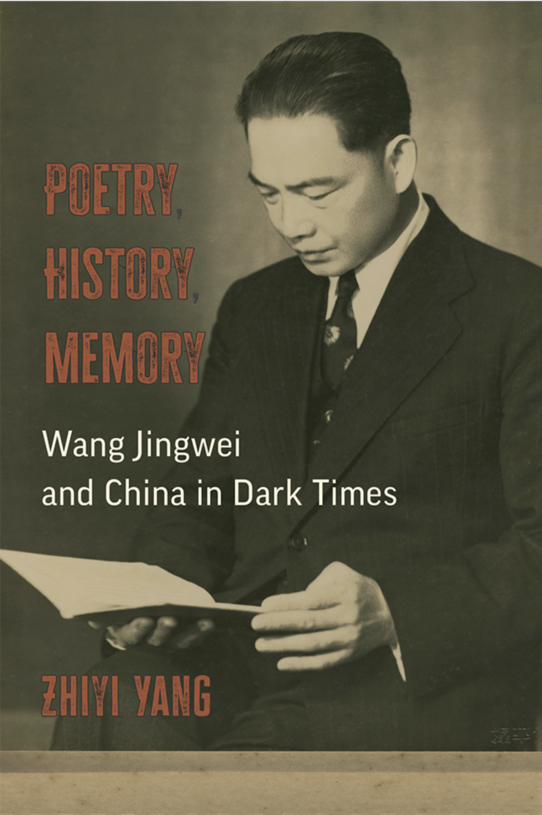
Zhiyi Yang's new monograph on Wang Jingwei, Poetry, History, Memory: Wang Jingwei and China in Dark Times was published in November 2023 by the University of Michigan Press.
Wang Jingwei, poet and politician, patriot and traitor, has always been a figure of major academic and popular interest. Until now, his story has never been properly told, let alone critically investigated. The significance of his biography is evident from an ongoing war on cultural memory: modern mainland China prohibits serious academic research on wartime collaboration in general, and on Wang Jingwei in particular. At this critical juncture, when the recollection of World War II is fading from living memory and transforming into historical memory, this knowledge embargo will undoubtedly affect how China remembers its anti-fascist role in WWII. In Poetry, History, Memory: Wang Jingwei and China in Dark Times, Zhiyi Yang brings us a long overdue reexamination of Wang's impact on cultural memory of WWII in China.
In this book, Yang brings disparate methodologies into a fruitful dialogue, including sophisticated methods of poetic interpretation. The author argues that Wang's lyric poetry, as the public performance of a private voice, played a central role in constructing his political identity and heavily influenced the public's posthumous memory of him. Drawing on archives (in the PRC, Taiwan, Japan, the USA, France, and Germany), memoires, historical journals, newspapers, interviews, and other scholarly works, this book offers the first biography of Wang that addresses his political, literary, and personal life in a critical light and with sympathetic impartiality.
IZO Events
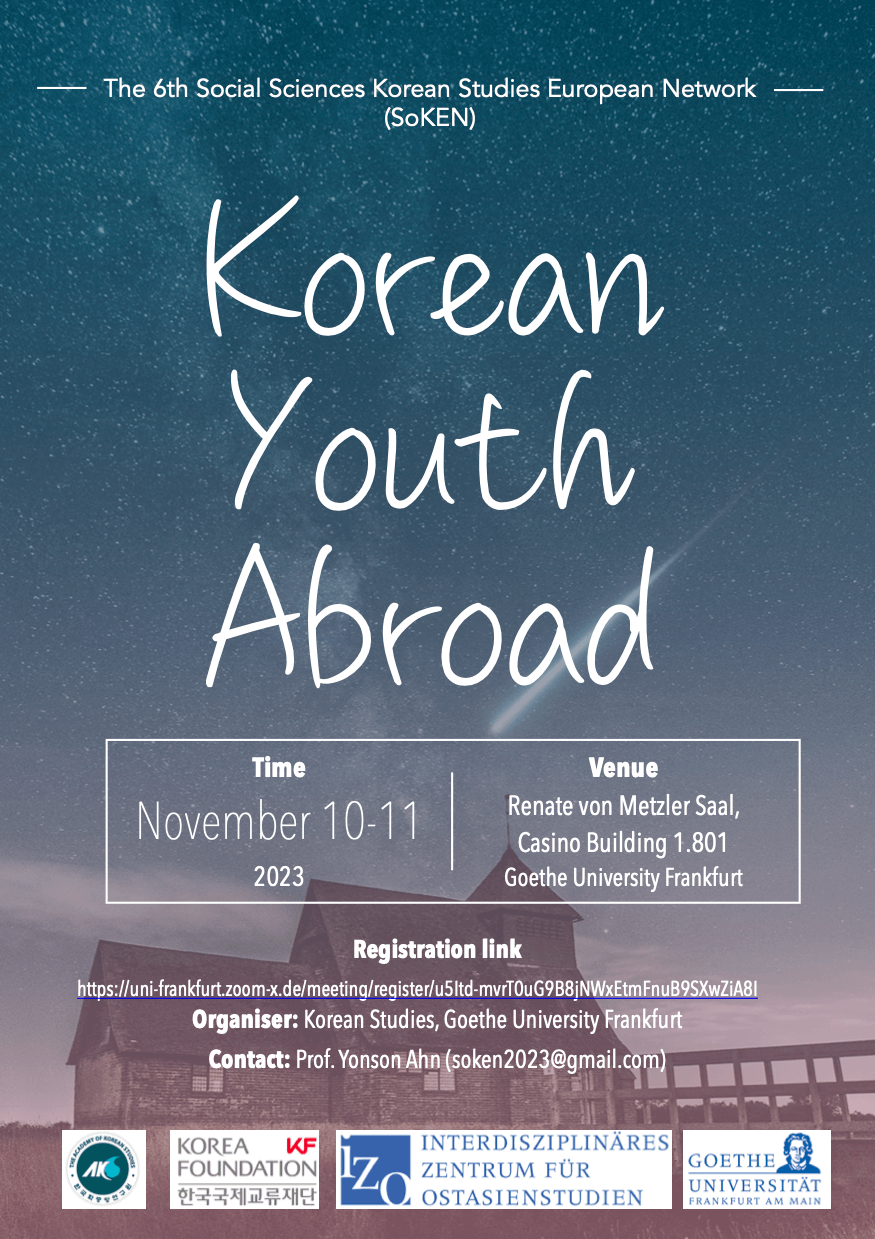
18 excellent lectures on Korean youth abroad, such as the second-generation Korean diaspora, young temporary migrants (e.g. working holiday visa holders and development workers) and Korean students abroad have been selected for the conference. The keynote speech will be given by Dr Sunhee Koo (University of Auckland). This conference will greatly contribute to the discussion and production of research in Korea-related social sciences in the European and global Korean Studies community and serves to expand the network for sustainable exchange.
The conference can be attended on site in the Renate von Metzler Saal on Campus Westend (Casino 1.801) or via Zoom (https://uni-frankfurt.zoom-x.de/meeting/register/u5Itd-mvrT0uG9B8jNWxEtmFnuB9SXwZiA8I).
10 November 2023
10:20-10:50 Welcome remarks
Prof. Yonson Ahn (Korean Studies, Goethe University Frankfurt) Mr. Byung-Kuk Woo, Director, Korea Foundation Berlin Office
11:00-12:30 Panel 1 Korean Youth in the Global South
Chair: Ruixin Wei
1. Jihye Kim (University of Central Lancashire & Goethe University Frankfurt) Ethnic Churches and Second-Generation Korean Brazilians in São Paulo
2. Jeong Taek Lim (University at Albany) Ethnic Identity of Korean-Vietnamese Adolescents Living in Vietnam: A Qualitative Study with an Ecological Approach
3. Young Su Park (Seoul National University) Online Of Two Velocities: Bifurcated Life Trajectories and Visions of Korean Aid Workers in Ethiopia
12:30-14:00 Lunch
14:00-15:30 Panel 2 Korean Youth in the Global South
Chair: Lynne Soon-Chean Park
4. Jihye Son (Korea University) A Comparative Study on the Language and Bicultural Identity of the Next Generation of Koreans in Brazil and Argentina
5. Ananya Mahir (Independent Researcher) Role of Young Koreans in Shaping Korea's Image in India
6. Kyungmin Bae (University of the Philippines) Return Migration to Where I was Not Born: Two Korean-Filipino Youth's Experience
16:00-17:30 Panel 3 Experiences of International Students
Chair: Bonnie Tilland
7. Jeehun Kim (Inha University) Multiple Purpose/Journey Migration: Lived Experiences of Korean University Students and Recent Graduates in Singapore
8. Hyunah Cho (University of Leeds) Musical Engagement and Subjective Wellbeing amongst Korean Students in the UK
9. Sung Un Gang (Technische Universität Berlin) Breaking Boundaries: Queer Korean Youth and Their Experiences of Studying Abroad
11 November 2023
10:00-10:50 Keynote Lecture
10. Sunhee Koo (University of Auckland) Culture, Meaning, and Overseas Korean Youth Identity: A Research Prospectus for the Past and Future
11:00-12:00 Panel 4 New Generation Koreans
Chair: Jeehun Kim
11. Ruixin Wei (Goethe University Frankfurt) The Ethnic Boundary-Making/Unmaking of Korean Chinese Youth in the Consumption of Korean Popular Culture
12. Lynne Soon-Chean Park (University of Auckland) Otherness, Acculturation and Social Identity: A Qualitative Inquiry of the Emergence of Ethnic Identity among 1.5- and 2nd-generation Korean New Zealanders
12:00-13:30 Lunch
13:30-15:00 Panel 5 Culture, Soft Power and Korean Youth
Chair: Hyunah Cho
13. James Jungho An (Independent Researcher), Yoona Kim (KAIST), Wonjae Choi (Seoul National University), Myunggu Jung (KAIST) Changes in the Notion of Success Through Hip Hop Music of Young Korean-American Rappers
14. Bonnie Tilland (Leiden University) King Sejong Institutes, Korean Teachers, and Soft Power
15. Carolyn Choi (Princeton University) Online At the Intersection of Race and Global Nation-Building: English Language Travel, Labor Market Segmentation, and Low-Wage Work among South Korean Working Holidaymakers in Australia
15:30-17:00 Panel 6 Ethnic Entrepreneurship and Employment
Chair: Kyungmin Bae
16. Jingeum Lee (Goethe University Frankfurt) Intercultural Business Communication in Korean Companies Near Frankfurt Am Main
17. Stephen Cho Suh (San Diego State University) and Brian Woohyun Kim (Seoul National University) Online Serving Diaspora in the Homeland: Korean American Culinary Entrepreneurs in Seoul's Food and Beverage Industry
18. Juhee Jeong (Heidelberg University) and Xiaoying Jin (Heidelberg University) Online The Contribution of Sending Country's Policy Initiative to Youth Mobility: Case Study of South Korea's Overseas Employment Support
IZO Events
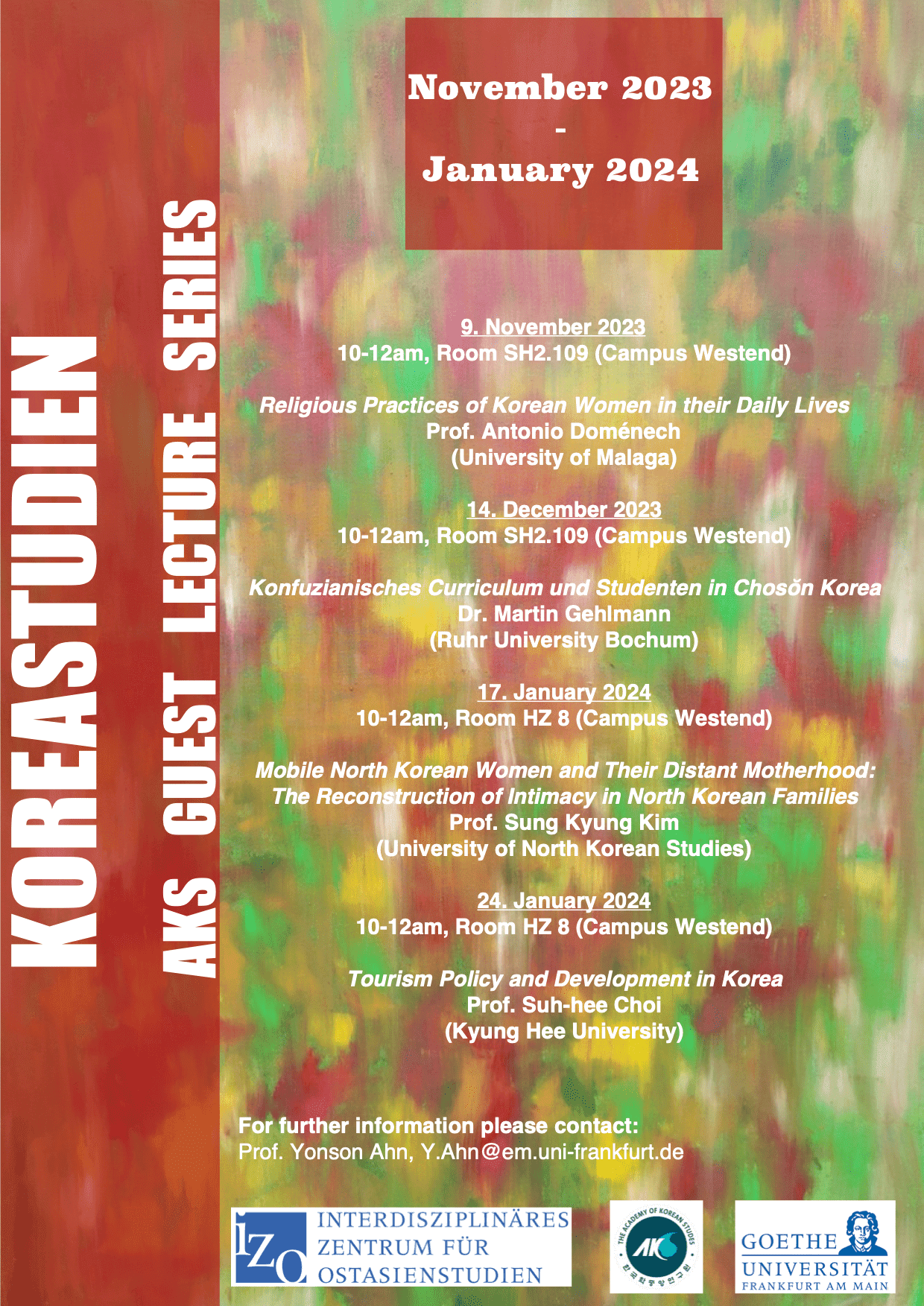
For further information please contact: Prof. Yonson Ahn, Y.Ahn[at]em.uni-frankfurt.de
IZO Events
This international workshop, which was funded by IZO's Early Career Researcher Network Fund, brought together 13 participants from 8 countries (plus 4 virtual participants) to explore the changing role of Asia within the global financial system.
The rules, norms, and procedures that govern cross-border money and finance are central cornerstones of the global economy. In the liberal financial order, the underlying principles which inform this governance of finance enable the free flow of capital across borders as well as the creation of private profit to achieve 'efficient' allocation of resources. These norms of how the global financial system ought to operate were largely put in place by the United States and followed by European states. Asia now accounts for an increasing share of the global financial system. In 2020, Asian financial systems accounted for 34.3%, 43.1% and 29.3% of global bond, stock, and futures markets, respectively. However, contemporary analyses of the global financial order tend to neglect the growing importance of Asia: either the focus is on China's challenge of liberal markets or (other) Asian countries are analysed and compared at a national or regional level. This workshop aimed to bridge these levels of analysis by exploring the globalisation of Asian financial systems/actors and their relationship with the liberal financial order, exploring questions such as:
• How do Asian financial actors integrate into the global financial system?
• Do they contest, co-opt, or comply with liberal norms of market organisation?
• How do they enact economic and financial statecraft, and what responses do they face in international markets? • How do global financial actors interact with Asian financial systems?
• What are the geopolitical and geoeconomic implications of these developments?
Before the workshop, we also held an event on 'publishing in academic journals' for early career researchers that was also attended by 10-15 people, mostly ECRs from Goethe University. More information about this event, which was aimed at demystifying the academic publishing process, featuring a Q&A with a former journal editor (Lena Rethel, Review of International Political Economy), can be found here.
IZO Events
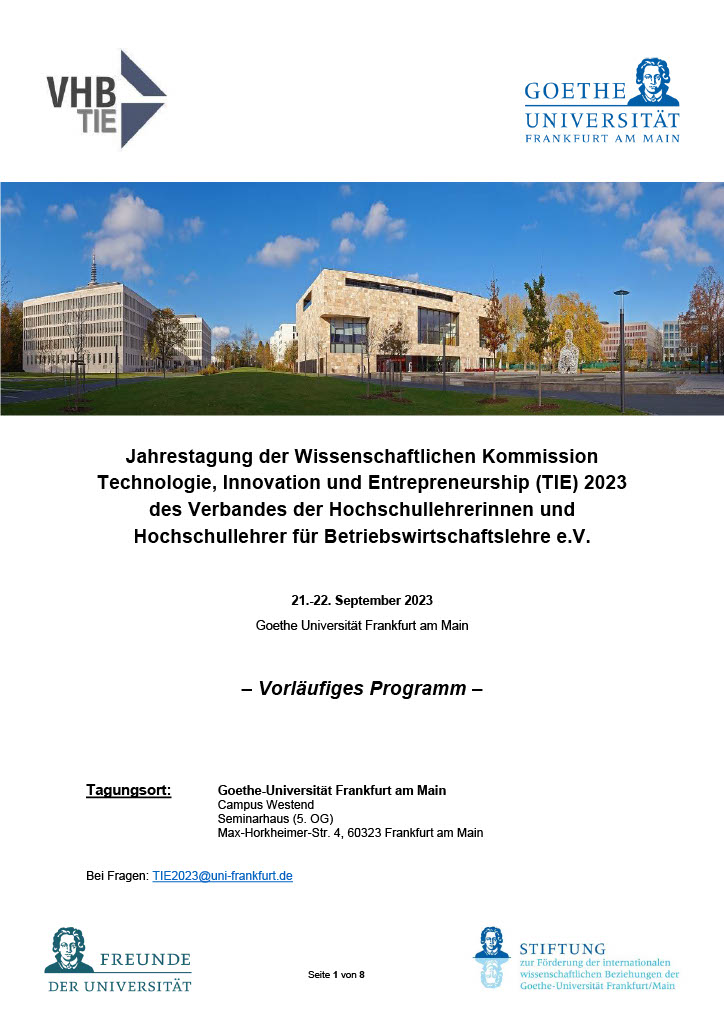
On 21 and 22 September 2023, the TIE Conference 2023 (Annual conference of the "Wissenschaftliche Kommission Technologie, Innovation und Entrepreneurship - TIE") of the German Academic Association of Business Research, Section Technology, Innovation and Entrepreneurship will be held in Frankfurt.
The conference, organised by Prof. Dr. Cornelia Storz (Innovation and Entrepreneurship), Prof. Dr. Simone Wies (Marketing Strategy and Performance), and Prof. Dr. Lars Schweizer (Strategic Management) will take place on Goethe University Frankfurt's Campus Westend.
IZO Events
The Asia Forum workshop consisted of four parts. Beginning with a theory-driven discussion on the concept of soft power, its added value and limitations, Gary Rawnsley and Benjamin Tallis reflected on soft power and the cultural implications of current political affairs. Song Hwee Lim presented an exciting link between soft power and geopolitics, using films and documentaries to illustrate geopolitical dynamics in Ukraine, Hong Kong and Taiwan. Michael Keane concluded the theoretical framework session with a review of soft power, focusing on its application and appropriation in the case of China and East Asia as a whole.
The second part focused specifically on Hallyu and its connection to South Korean soft power. Dal Yong Jin presented the emergence of Korean digital soft power and how the Korean government turns its cultural exports into diplomatic branding. Sangjoon Lee reviewed the history and transformation of the Korean film industry since the 1990s and the reasons for its success. Mark R. Plaice reflected on Korean soft power and the impact of Korean studies education. The session ended with a panel hosted by Cornelia Storz titled “Can the “Soft Power" Concept Explain the Global Success of Korean Culture and its Impact?".
The third part of the workshop broadened the perspective by looking at the soft power policies of other East Asian states. Nissim Otmazgin discussed Japan's long history of soft power and the extent and effort of utilising such assets in Japanese cultural and foreign policy. Looking at the case of Taiwan, Ting-ying Lin discussed the newly established institution TAICCA and how the Tsai government rebranded Taiwanese national values through the creative industries. Paola Voci critically dissected the inner workings of "soft power" policies and their ambiguous connection to official and marginalised cultural products, looking in particular at China's soft power as a "cracked game". Ying Zhu compared the emerging K-pop industry to China's declining soft power. Finally, Keun Lee presented his findings on the transformation of the Korean film industry, in which market liberalisation, the state and key actors played a pivotal role in revolutionising the industry.
In the spirit of the CEDITRAA project's transregional outlook, we also invited scholars to review Hallyu in its applications and implications for African countries in the concluding session. Olusola Ogunnubi discussed Nigeria's potential to become a regional cultural hub exercising cultural soft power in Africa. Suweon Kim analysed potential opportunities in South Africa that have been neglected by Korean companies. She proposed a South African-South Korean solidarity in the light of cultural empathy, collective pride, and exclusion. Usaku Wammanda considered the impact of the K-drama concept on Nigerian culture, which extends our previous soft power discourses. A final panel chaired by Vinzenz Hediger entitled "Soft Power: Core Element, Complement or Compensation?" concluded our two-day conference.
In addition, the public lecture on “Korean Film and Television – Competitiveness and Future Prospects" by film producer and CEO of Realies Pictures Dong Yeon Won attracted a large audience to Goethe University's Renate-von-Metzler-Saal in the evening of 6 July. Moderated by Prof. Yonson Ahn of IZO, the lecture and discussion with Mr Won provided first-hand insights into practical aspects and success factors in the world of Korean film and TV series production.
We would like to thank all participants who came to Frankfurt for contributing to a lively, critical and fruitful debate that will surely continue in various follow-up formats.
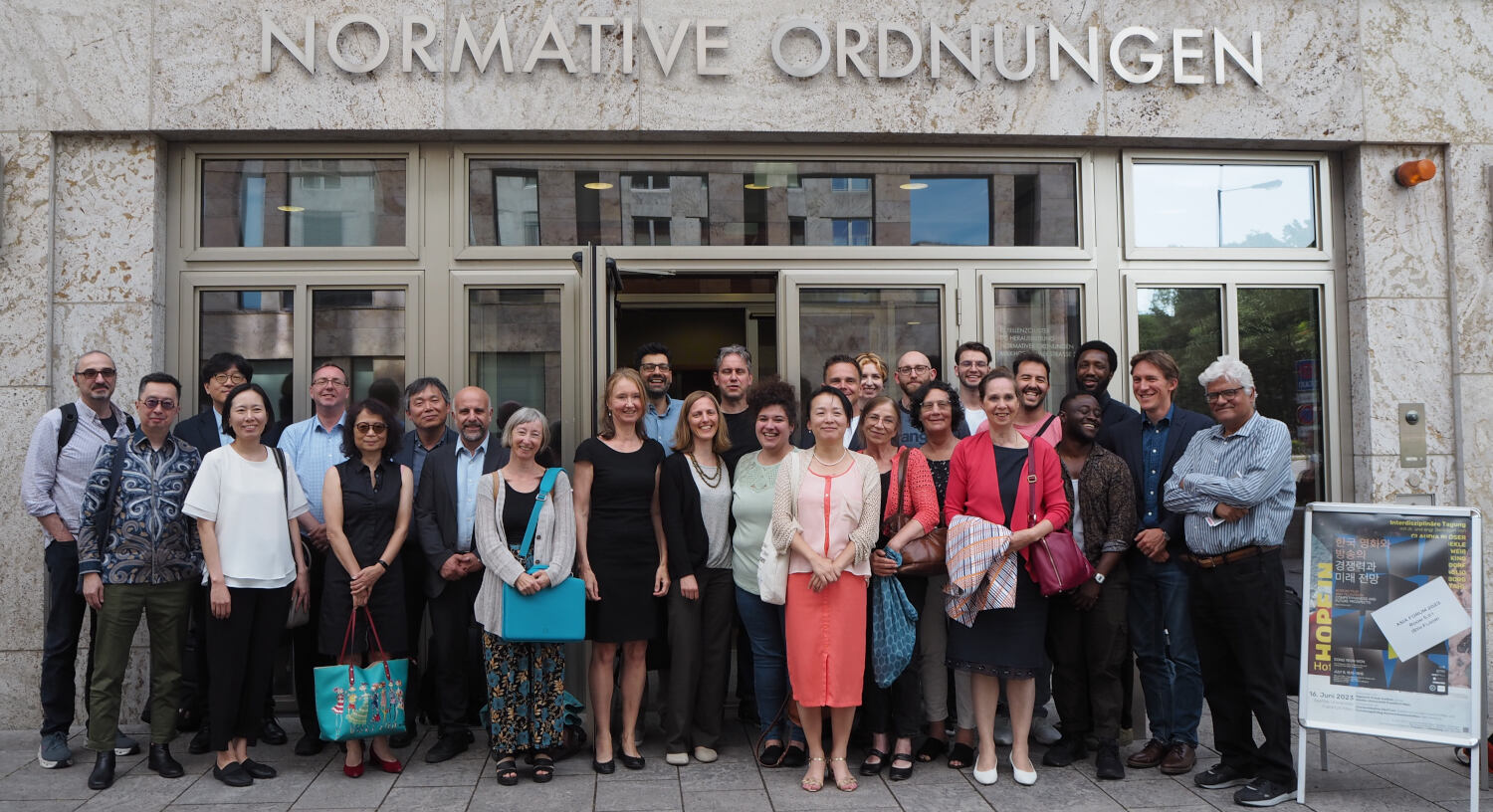
Current Research
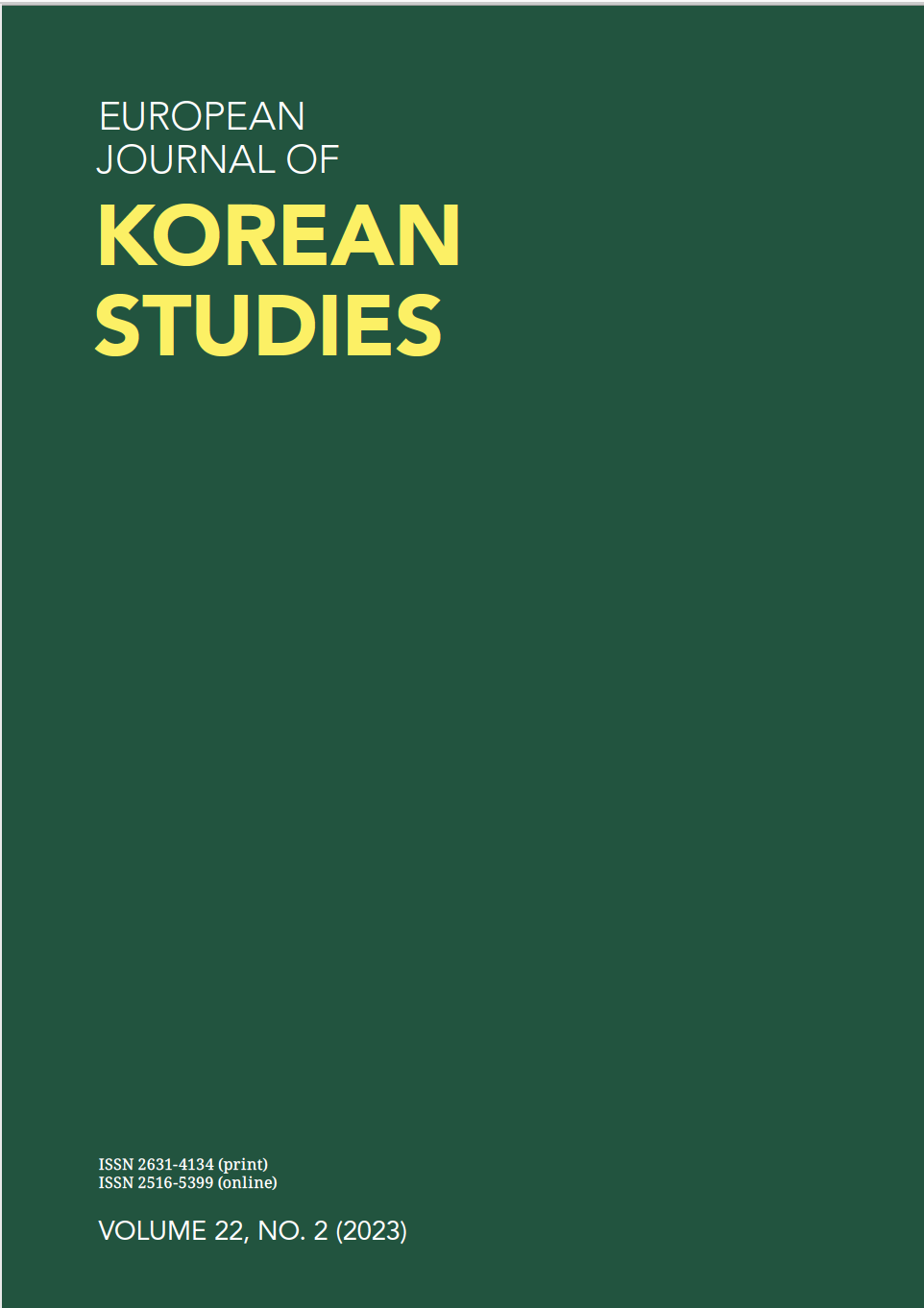
1) Yonson Ahn. “Maternal Practices of Korean Healthcare Workers in Germany" European Journal of Korean Studies, vol. 22 no.2 (2023), 11- 43, https://doi.org/10.33526/ejks.20232202.11
In this article, Yonson Ahn explores mothering practices primarily between the 1960s and 1990s in the families of Korean migrant healthcare workers drawing on personal accounts. They migrated to the former West Germany as “guest workers" and resided in Germany over the course of their working lives and/or returned to South Korea. This study charts the manner in which these migrant mothers navigated and balanced competing social discourses around mothering that emerged from the different cultural and historical backgrounds in a new host society. Special attention is paid to the way in which mothering is negotiated and experienced by migrant mothers in gendered family roles over the time—the period from childhood to adulthood—spent in the host country. Various practices and strategies for childcare arrangements and education in sustaining a migrant family in the host country are discussed. Another salient question to explore is the way the migrants' ethnic culture and values inform their ethno-specific mothering practices. In this respect, the demands, and aspirations of cross-cultural mothering to raise children with dual- cultural competence in both the culture of origin and that of destination are explored.
2) Co-authored with Jihye Kim, Yonson Ahn has published another article on Korean migration in Europe.
Jihye Kim & Yonson Ahn, “Gradual, Diverse, Complex—and Unnoticed: Korean Migration in Europe", European Journal of Korean Studies, vol. 22, no. 2 (2023): 1-10.
Despite the long and interesting migration history of Koreans to Europe and the constant and increased mobilities and movements between the two regions, in general, Korean migration is an area that has been substantially understudied, even in terms of the three major destination countries of the Germany, UK, and France. Korean migration in Europe has had a variety of motivations and followed dynamic trajectories in each European nation. This study helps to make up for current deficiencies, addressing issues previously underexplored and contributing to the development of existing theories and concepts in migration studies.
- Studying at Goethe University
- International applicants
- Faculties
- Overview of study programmes
- Programme for refugees
- GRADE
- Goethe Business School (continuing education)
- Research at Goethe University
- Scientific news
- Goethe Welcome Center (for international researchers)
- Collaborative research projects
- Individual research
- Visiting fellowships
- Endowed chairs
- About the University
- News-in-brief
- University administration
- Campus locations
- Campus life
- University archives (German)
- Rhine-Main-Universities


